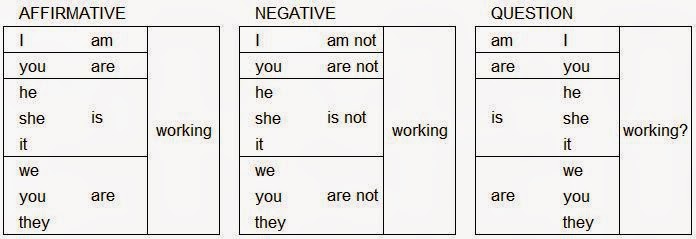The words some and any are used when number or an exact amount is not specified.
->In general, some is used in positive sentences:
* I need some oranges for my juice.
* There are some grapes in the basket.
* She puts some butter on her bread.
* There are some roses in my garden
->In general, any is used in negative sentences and questions:
* I don't need any help.
* There aren't any pencils on the desk.
* Do you have any brothers or sisters?
-> Exceptions:
1. We can use some in questions when offering/requesting:
* Would you like some tea?
* Could I have some orange juice, please?
2. We use any in positive sentences when we mean it doesn't matter which ..:
* You can come and ask for my help any time.
Exercises
->Some or Any
* There's ______ milk in the fridge.
* My sister has ______ bracelets .
* There are _____ children in the park .
* My mom didn't put _____ keys in her purse.
* There are ______ hospitals in this city.
* I didn't buy ________ sweets.
* Are there ______ parks in this neighborhood?
* The teacher gave me _____ stamps.
* I'm going to buy _______ apples.
* Did you see ______ horses in the farm?
miércoles, 1 de abril de 2015
domingo, 1 de marzo de 2015
Pronouns
Subject
pronouns
We use subject pronouns as subject of the verb:
I like
your dress.
You are late.
He is my friend
It is raining
She is on holiday
We live in England.
They come from London.
You are late.
He is my friend
It is raining
She is on holiday
We live in England.
They come from London.
Object
pronouns
We use object pronouns:
• as the object of the verb:
Can you help me please?
I can see you.
She doesn’t like him.
I saw her in town today.
We saw them in town yesterday, but they didn’t see us.
I can see you.
She doesn’t like him.
I saw her in town today.
We saw them in town yesterday, but they didn’t see us.
• after prepositions:
She is waiting for me.
I’ll get it for you.
Give it to him.
Why are you looking at her?
Don’t take it from us.
I’ll speak to them.
I’ll get it for you.
Give it to him.
Why are you looking at her?
Don’t take it from us.
I’ll speak to them.
Possessive
adjectives
We use possessive adjectives to show who owns or "possesses"
something. They modify the noun following it in order to show possession.
Examples:
- I'll get my bag.
- Is this your luggage?
Possessive
pronoun
Possessive pronoun is a part of speech that attributes ownership to someone or something.
Like any other pronoun, it substitutes a noun phrase and can prevent its
repetition. For example, in the phrase, "These glasses are mine, not yours", the words
"mine"
and "yours"
are possessive pronouns and stand for "my glasses" and "your
glasses," respectively.
jueves, 26 de febrero de 2015
domingo, 22 de febrero de 2015
Present Progressive
We use the present progressive when we refer to something that is happening now.
To write sentences using the present progressive you have to follow the following structure.
(+) Pronoun or noun + verb to be + verb ing + complement
(-) Pronoun or noun + verb to be + not + verb ing + complement
(?) Verb to be + Pronoun or noun + verb ing + complement ?
Suscribirse a:
Entradas (Atom)









